PARTNERS: Cochin Shipyard Ltd
PROJECT LEAD: Sajan John (sajan@wti.org.in)
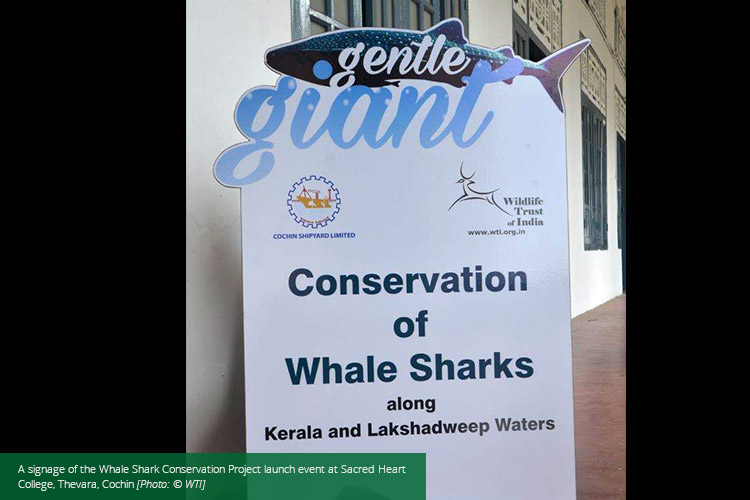
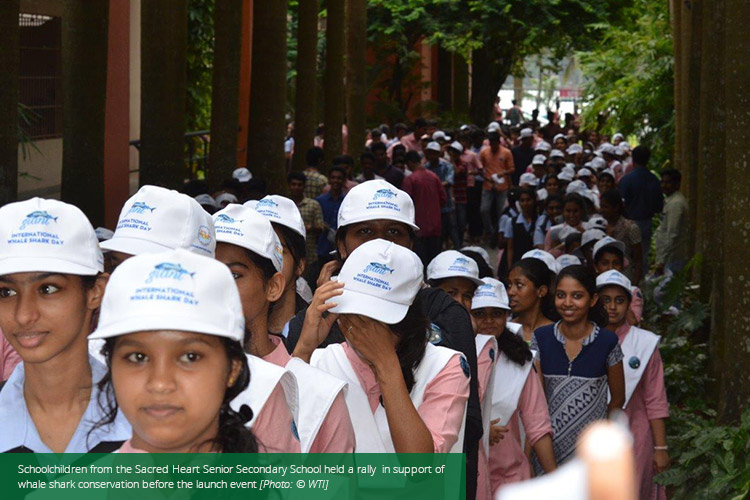
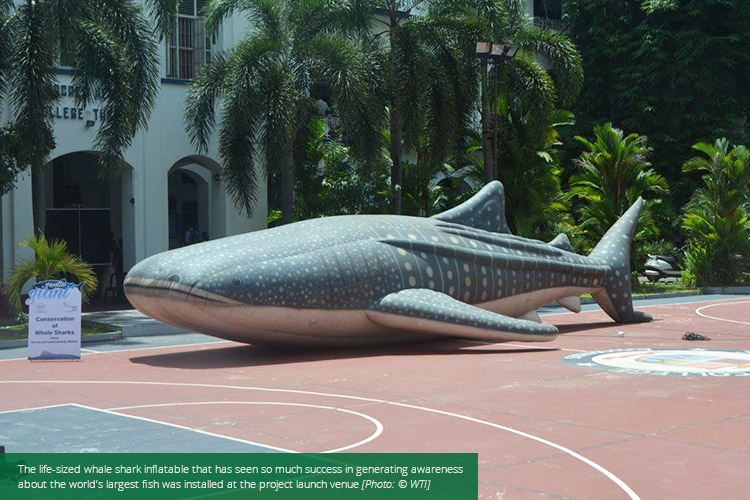
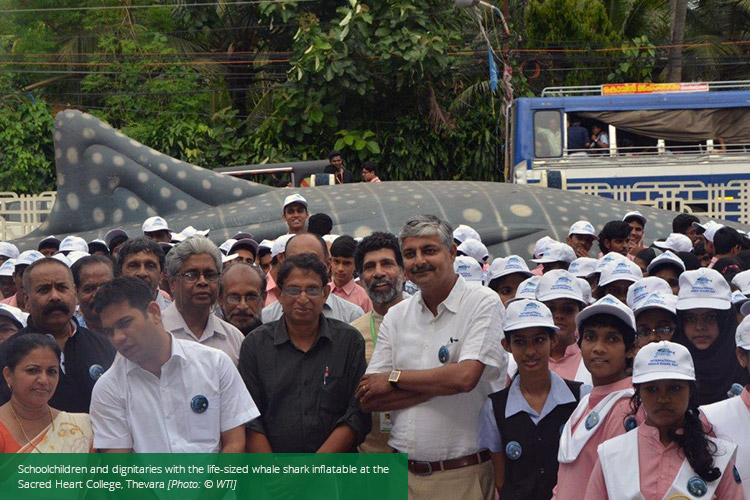
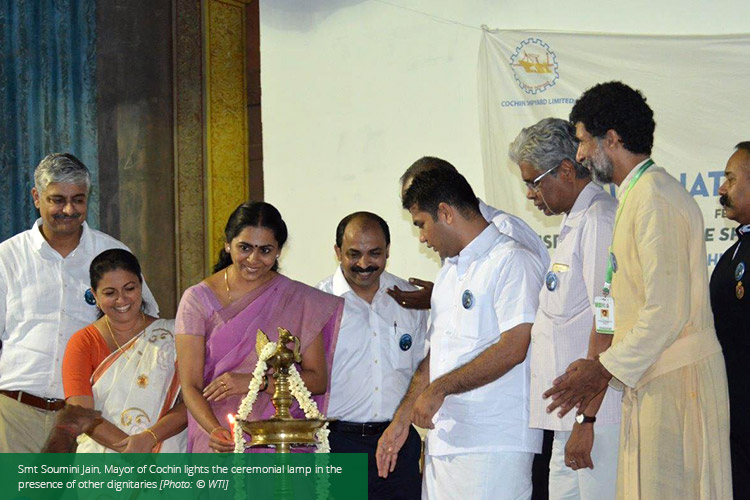
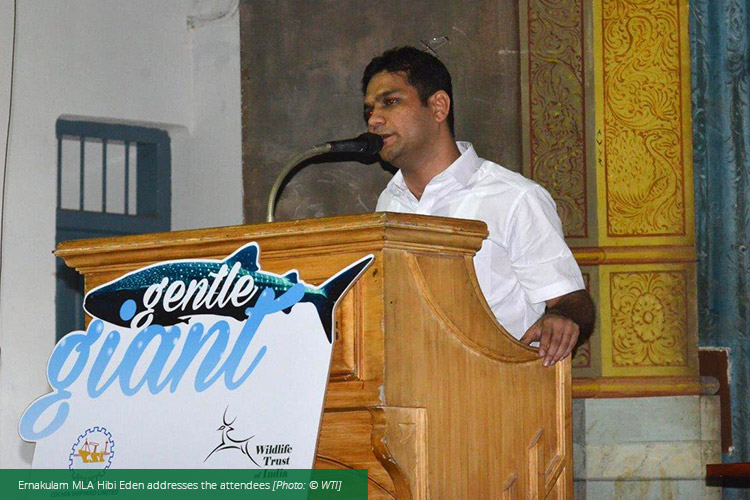
The launch of the whale shark conservation project in Kerala
THE WHALE SHARK (Rhincodon typus A. Smith, 1829) is the largest fish on earth. It can grow to a length of approximately 18 m and weigh as much as 21 metric tons. Although distributed widely across tropical and warm temperate seas, limited information is available on the population trends of this species, especially along the Indian coastline. Catch statistics and anecdotal reports suggest that population of whale sharks is declining. Unregulated and unsustainable fishing practices to meet international trade demands for shark fins, liver oil, skin and meat, accidental entanglement in fishing nets, collision with boats as well as extensive coastal pollution have been attributed as major threats to the survival of this species. This could potentially lead to its decline and can result in extinction either at the regional or global scale.
Due to lack of legal protection, whale sharks were once brutally hunted and slaughtered on an extensive scale across the shores of western India till 2001.
WHY KERALA?
This conservation initiative aims to increase awareness levels among coastal communities along the coast of Kerala through a full-fledged campaign.
Whale shark hunting in Gujarat has been completely stopped thanks to the Whale Shark Conservation Project run by WTI in partnership with Tata Chemicals Lt and the Gujarat Forest Department. However, a concerted effort is required along the remaining Indian coastline for the protection of the species. Acknowledging this need, WTI with the support of IUCN conducted a survey along India’s west coast (excluding Gujarat) in 2012-13 and found that the highest number of whale sharks were sighted near the Lakshadweep waters (28% response from fishers). A survey of local literature revealed that whale shark landings and strandings are largely reported from Kerala. The fishers of Kerala often go into the waters off Lakshadweep to fish, and the high incidental landings can perhaps be attributed to this fact.
In its first phase, WTI and Cochin Shipyard Ltd’s conservation initiative aims to increase awareness levels among coastal communities and marine fishers along the coast of Kerala through a full-fledged campaign. The aim is sensitise at least 50% of the coastal community on the need to save the whale shark and inculcate a sense of pride in its existence in their fishing zones. The project will work with coastal district administrations to encourage them to adopt the whale shark as their mascot, as was done in Gujarat. As the campaign comes to a close, fishing communities are expected to voluntarily release whale sharks that have been accidentally trapped in their nets.
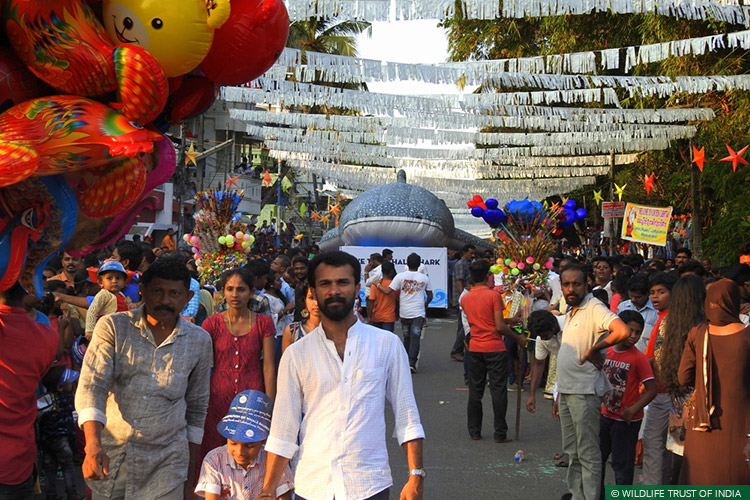
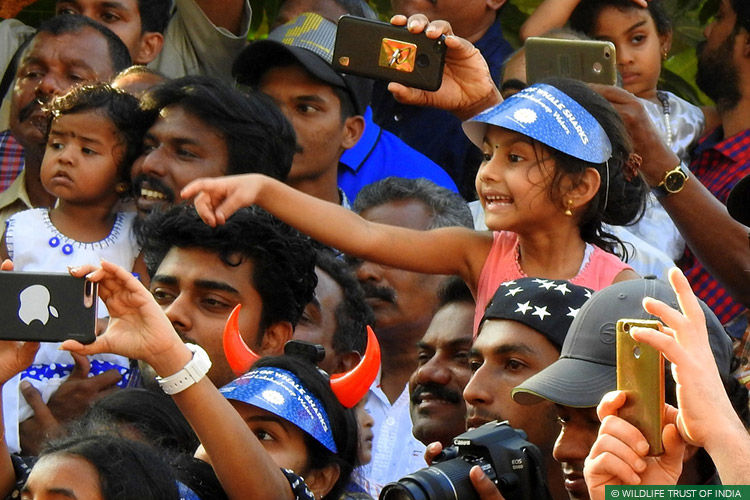
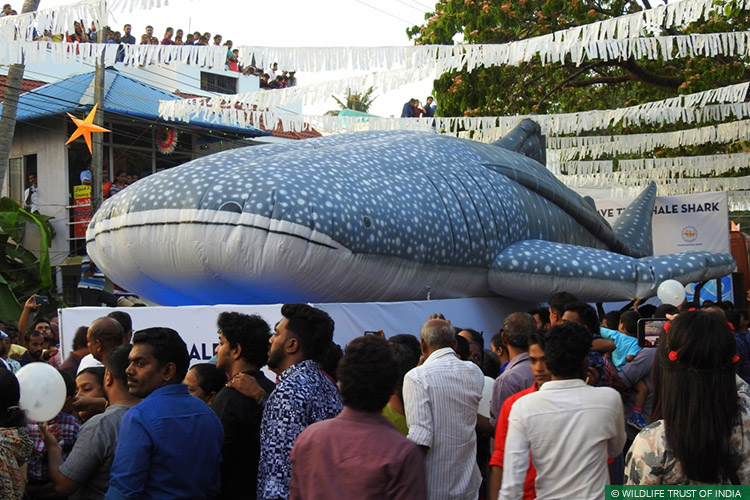

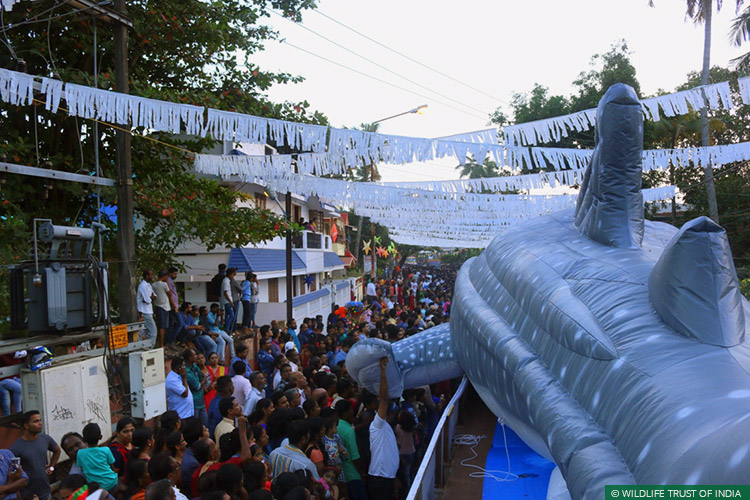

The whale shark awareness campaign making waves at the New Year Cochin Carnival